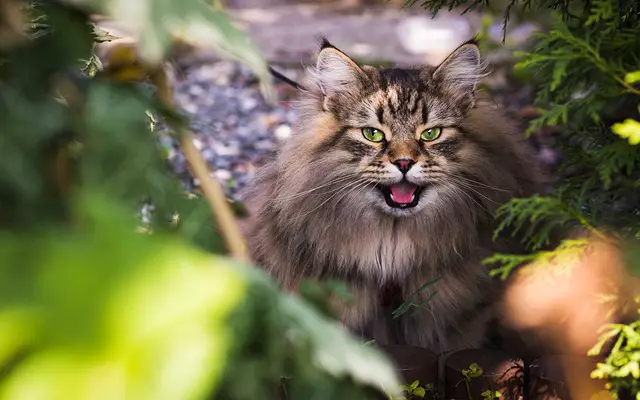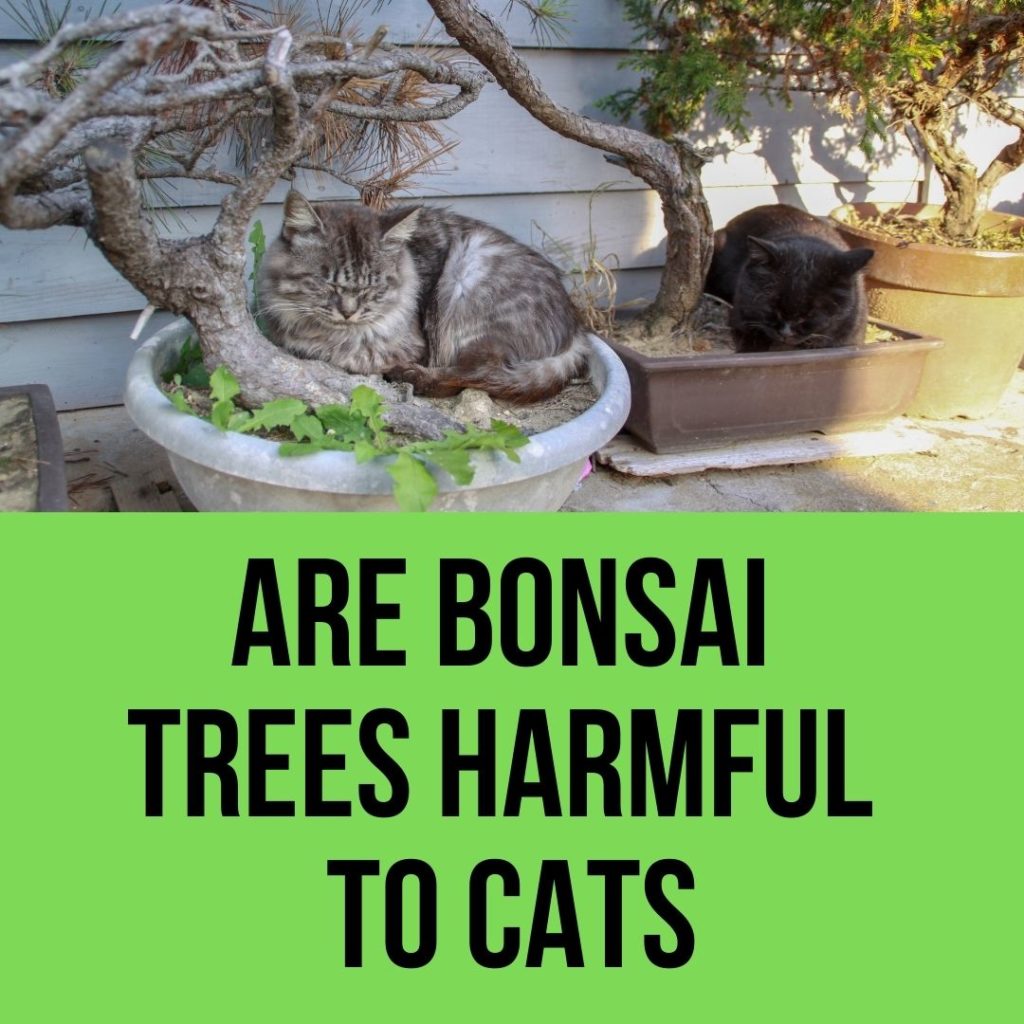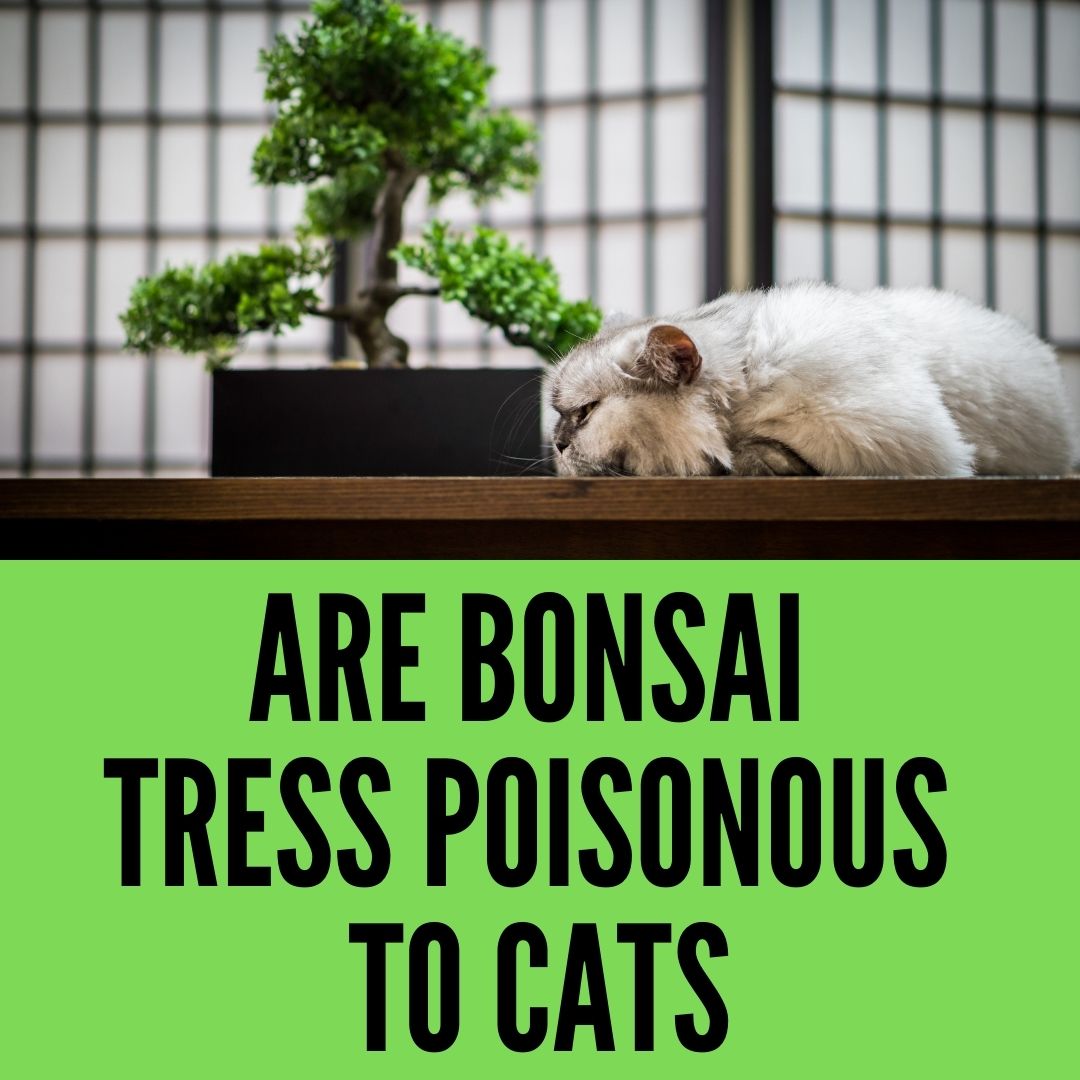Bonsai describes the ancient oriental technique of growing a miniature tree in a container, recreating the appearance of a mature tree in nature. Gardeners maintain the appearance of the tree by shaping and pruning branches and roots.
So, in this article, we will tell you, are bonsai trees harmful to cats and some other questions as well.
They are a pleasure to the eyes and are considered a hobby for plant enthusiasts. However, the trees should not be kept around pets, particularly cats. The tree leaves and seeds may not be harmful to humans but for animals, they can have fatal effects.
Are Bonsai Trees Poisnous To Cats
Normally pet cats nibble on plants and sometimes vegetation is important for their digestion. Artistic gardeners can create stunningly beautiful miniature scenery with bonsai, which could be kept indoors in the company of pets. Pet owners should select bonsai plants with caution because many types can pose a threat to cats.

SELECTION OF PLANTS
not all plants are good for bonsai, plants must have components such as branches, flowers, and leaves in perfect scale with the tree.
Common plants used in bonsai culture are azaleas, plum, pomegranate, fir, pine, spruce, juniper, cedar, cypress, and pyracantha, but many of these plants can be harmful to cats.
Cycasin is a toxic agent and trees like the Sago Palm tree’s all parts contain the element.
The common bonsai plants that are dangerous for your cats are as follows
- Fig,
- Cherry,
- Norfolk Island Pine,
- Plum,
- Baby Jade,
- Ambrosia Mexicana,
- Azaleas,
- Fern Palm,
- Australian Ivy Palm,
- Australian Pine,
- Coontie Palm,
- Cardboard Palm,
- Apricot,
- Buddhist Pine,
- Giant Dracaena.
These plants should not be around cats. The common safe bonsai tree options are Juniper, Japanese Maple, Fukien Tea, Hibiscus, Christmas Cactus, and Bamboo. These trees can satisfy a pet owner’s need for aesthetics while being absolutely sure about their pet’s safety.

The American Society for the Prevention of Cruelty to Animals lists azaleas and many types of pines and trees, all of which are popular as bonsai, and toxic to cats. Veterinarian Jill Richardson New York Mayor’s Alliance for Animals Inc. also warns that palm cycas, sometimes used in bonsai culture, are poisonous.
SYMPTOMS
The ASPCA states that popular bonsai plants such as Cycladic palms, azalea leaves, and fruit tree seeds, stems, and leaves can cause liver, heart, or nervous system problems that could cause death.
Ingesting pieces of pine trees used in bonsai culture by cats can cause vomiting and depression. If a cat consumes the plant, it will show abnormal symptoms. The symptoms can be vomiting, diarrhea, drooling, and inappetence.
A high dosage of cycasin can cause coma and seizure too. some plants toxic to cats will cause only mild gastrointestinal upset, while others could cause dangerous or life-threatening complications, such as liver or kidney failure.
You can protect your cats by checking the ASPCA’s Toxic Plants List or asking your veterinarian before bringing new plants, such as bonsai trees, indoors
CAUTION
if there is an accident always check for damage on trees. For example, bite marks, scratch marks on the tree, and common symptoms like vomiting and drooling. A cat will show the primary symptoms in the first 15 mins and an owner should go to the nearest vet as soon as possible.
As for the first aid, rinsing the cat’s mouth with water and removing the substance from their mouth can help. The owner should also take a part of the tree with them, so the vet can identify the toxic agent.
Are Spider Plants Toxic to Cats?
PREVENTION
Alternatively, cat owners can make structures to keep their cats away from their bonsai trees. Although cats, in particular, are mischievous sorts and it is very hard to keep them away from plants.
However, building a greenhouse and barricading it is a safe option. The life of a pet is quite precious to pet owners, so ensuring the safety of their pets is reason enough to consider a greenhouse.
Conclusion
A cat owner can also put his or her bonsai trees on floating shelves and apply citrus extracts to them. The citrus smell is quite hated by felines and can be a good option to keep them away from the trees while keeping the trees intact.
There are also nonpoisonous bonsai trees and they can be a great alternative for pet lovers. So, pet owners can research safer alternatives for their homes before they get into the hobby.
